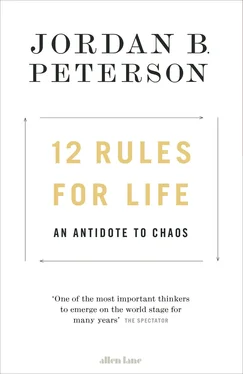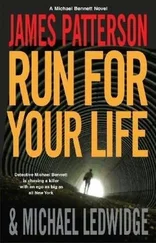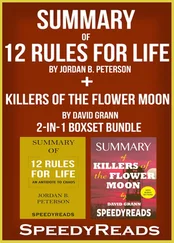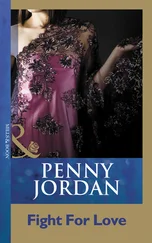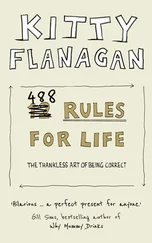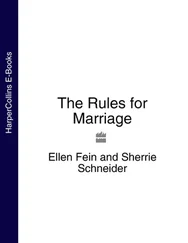I saw him grow, from the remarkable person he was, into someone even more able and assured—through living by these rules. In fact, it was the process of writing this book, and developing these rules, that led him to take the stand he did against forced or compelled speech. And that is why, during those events, he started posting some of his thoughts about life and these rules on the internet. Now, over 100 million YouTube hits later, we know they have struck a chord.
Given our distaste for rules, how do we explain the extraordinary response to his lectures, which give rules? In Jordan’s case, it was of course his charisma and a rare willingness to stand for a principle that got him a wide hearing online initially; views of his first YouTube statements quickly numbered in the hundreds of thousands. But people have kept listening because what he is saying meets a deep and unarticulated need. And that is because alongside our wish to be free of rules, we all search for structure.
The hunger among many younger people for rules, or at least guidelines, is greater today for good reason. In the West at least, millennials are living through a unique historical situation. They are, I believe, the first generation to have been so thoroughly taught two seemingly contradictory ideas about morality, simultaneously—at their schools, colleges and universities, by many in my own generation. This contradiction has left them at times disoriented and uncertain, without guidance and, more tragically, deprived of riches they don’t even know exist.
The first idea or teaching is that morality is relative, at best a personal “value judgment.” Relative means that there is no absolute right or wrong in anything; instead, morality and the rules associated with it are just a matter of personal opinion or happenstance, “relative to” or “related to” a particular framework, such as one’s ethnicity, one’s upbringing, or the culture or historical moment one is born into. It’s nothing but an accident of birth. According to this argument (now a creed), history teaches that religions, tribes, nations and ethnic groups tend to disagree about fundamental matters, and always have. Today, the postmodernist left makes the additional claim that one group’s morality is nothing but its attempt to exercise power over another group. So, the decent thing to do—once it becomes apparent how arbitrary your, and your society’s, “moral values” are—is to show tolerance for people who think differently, and who come from different (diverse) backgrounds. That emphasis on tolerance is so paramount that for many people one of the worst character flaws a person can have is to be “judgmental.” [11811] Some argue—mistakenly—that Freud (often mentioned in these pages) contributed to our current longing for a culture, schools and institutions that are “non-judgmental.” It is true that he recommended that when psychoanalysts listen to their patients in therapy, they be tolerant, empathic, and not voice critical, moralistic judgments. But this was for the express purposes of helping patients feel comfortable in being totally honest, and not diminish their problems. This encouraged self-reflection, and allowed them to explore warded off feelings, wishes, even shameful anti-social urges. It also—and this was the masterstroke—allowed them to discover their own unconscious conscience (and its judgments), and their own harsh self-criticism of their “lapses,” and their own unconscious guilt which they had often hidden from themselves, but which often formed the basis of their low self-esteem, depression and anxiety. If anything, Freud showed that we are both more immoral and more moral than we are aware of. This kind of “non-judgmentalism,” in therapy , is a powerful and liberating technique or tactic—an ideal attitude when you want to better understand yourself. But Freud never argued (as do some who want all culture to become one huge group therapy session) that one can live one’s entire life without ever making judgments, or without morality. In fact, his point in Civilization and its Discontents is that civilization only arises when some restraining rules and morality are in place.
And, since we don’t know right from wrong, or what is good, just about the most inappropriate thing an adult can do is give a young person advice about how to live.
And so a generation has been raised untutored in what was once called, aptly, “practical wisdom,” which guided previous generations. Millennials, often told they have received the finest education available anywhere, have actually suffered a form of serious intellectual and moral neglect. The relativists of my generation and Jordan’s, many of whom became their professors, chose to devalue thousands of years of human knowledge about how to acquire virtue, dismissing it as passé, “not relevant” or even “oppressive.” They were so successful at it that the very word “virtue” sounds out of date, and someone using it appears anachronistically moralistic and self-righteous.
The study of virtue is not quite the same as the study of morals (right and wrong, good and evil). Aristotle defined the virtues simply as the ways of behaving that are most conducive to happiness in life. Vice was defined as the ways of behaving least conducive to happiness. He observed that the virtues always aim for balance and avoid the extremes of the vices. Aristotle studied the virtues and the vices in his Nicomachean Ethics. It was a book based on experience and observation, not conjecture, about the kind of happiness that was possible for human beings. Cultivating judgment about the difference between virtue and vice is the beginning of wisdom, something that can never be out of date.
By contrast, our modern relativism begins by asserting that making judgments about how to live is impossible, because there is no real good, and no true virtue (as these too are relative). Thus relativism’s closest approximation to “virtue” is “tolerance.” Only tolerance will provide social cohesion between different groups, and save us from harming each other. On Facebook and other forms of social media, therefore, you signal your so-called virtue, telling everyone how tolerant, open and compassionate you are, and wait for likes to accumulate. (Leave aside that telling people you’re virtuous isn’t a virtue, it’s self-promotion. Virtue signalling is not virtue. Virtue signalling is, quite possibly, our commonest vice.)
Intolerance of others’ views (no matter how ignorant or incoherent they may be) is not simply wrong; in a world where there is no right or wrong, it is worse: it is a sign you are embarrassingly unsophisticated or, possibly, dangerous.
But it turns out that many people cannot tolerate the vacuum—the chaos—which is inherent in life, but made worse by this moral relativism; they cannot live without a moral compass, without an ideal at which to aim in their lives. (For relativists, ideals are values too, and like all values, they are merely “relative” and hardly worth sacrificing for.) So, right alongside relativism, we find the spread of nihilism and despair, and also the opposite of moral relativism: the blind certainty offered by ideologies that claim to have an answer for everything.
And so we arrive at the second teaching that millennials have been bombarded with. They sign up for a humanities course, to study greatest books ever written. But they’re not assigned the books; instead they are given ideological attacks on them, based on some appalling simplification. Where the relativist is filled with uncertainty, the ideologue is the very opposite. He or she is hyper-judgmental and censorious, always knows what’s wrong about others, and what to do about it. Sometimes it seems the only people willing to give advice in a relativistic society are those with the least to offer.
Читать дальше
